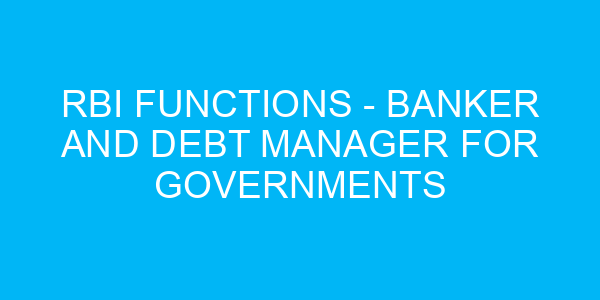21. Who is responsible for setting the benchmark interest rates for government securities?
a) Ministry of Finance
b) Securities and Exchange Board of India (SEBI)
d) National Stock Exchange (NSE)
22. What is the purpose of repo and reverse repo transactions conducted by RBI in the government securities market?
a) To manage liquidity in the banking system
b) To regulate the flow of foreign investment in government bonds
c) To minimize the government’s debt burden
d) All of the above
23. RBI provides short-term loans to the government to cover temporary mismatches in cash inflows and outflows. What are these loans called?
a) Treasury Bills
b) Cash Management Bills
c) Ways and Means Advances (WMA)
d) Bonds
24. Which government body issues Treasury Bills in India?
a) Ministry of Finance
b) Securities and Exchange Board of India (SEBI)
c) Reserve Bank of India
d) National Stock Exchange (NSE)
25. How does RBI manage the government’s cash balance?
a) By investing surplus funds in government securities
b) By maintaining a cash credit account for the government
c) By conducting open market operations with commercial banks
d) By advising the government on expenditure and revenue management




